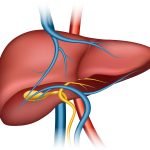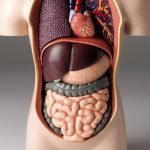Understanding the Health Hazards of Acid Reflux
Acid reflux, also known as gastroesophageal reflux disease (GERD), is a common condition that affects millions worldwide. It occurs when stomach acid frequently flows back into the esophagus, the tube that connects your mouth and stomach. This backflow, or reflux, can lead to uncomfortable symptoms and pose several health hazards if not managed properly. In this blog, we’ll explore the health risks associated with acid reflux, how to recognize them, and what steps you can take to mitigate these risks.
1. Persistent Heartburn and Discomfort
The hallmark symptom of acid reflux is persistent heartburn, characterized by a burning sensation in the chest or throat. While occasional heartburn might not be alarming, frequent episodes can lead to more severe complications. Chronic heartburn can disrupt daily life, affect sleep, and cause significant discomfort. It is essential to address these symptoms promptly to avoid long-term damage.
2. Esophageal Damage
Repeated exposure to stomach acid can cause inflammation of the esophagus, known as esophagitis. This inflammation can lead to pain, difficulty swallowing, and even ulcers. Over time, chronic acid reflux can lead to esophageal erosion, where the lining of the esophagus is worn away, resulting in bleeding or scarring. In severe cases, this can cause narrowing of the esophagus, making it challenging to swallow.
3. Risk of Barrett’s Esophagus
One of the serious long-term complications of chronic acid reflux is Barrett’s esophagus, a condition where the lining of the esophagus changes to resemble the lining of the intestines. This alteration increases the risk of esophageal cancer. Regular monitoring and early intervention are crucial for those diagnosed with Barrett’s esophagus to manage the risk of progression to cancer.
4. Respiratory Issues
Acid reflux can also affect your respiratory system. When stomach acid enters the throat and lungs, it can lead to chronic cough, asthma-like symptoms, or even pneumonia. This occurs because acid can irritate the airways, making it difficult to breathe and increasing susceptibility to respiratory infections.
5. Dental Erosion
The acid from reflux can also damage your teeth. Frequent exposure to stomach acid can erode tooth enamel, leading to increased sensitivity, decay, and other dental issues. Maintaining good oral hygiene and regular dental check-ups are essential to counteract the effects of acid reflux on your dental health.
6. Lifestyle and Dietary Factors
Certain lifestyle and dietary factors can exacerbate acid reflux symptoms. Foods such as spicy dishes, citrus fruits, and caffeinated beverages can trigger or worsen reflux. Additionally, eating large meals or lying down shortly after eating can contribute to acid reflux. Making dietary adjustments and adopting healthier eating habits can help manage symptoms effectively.
7. Treatment and Management
Managing acid reflux involves a combination of lifestyle changes and medical treatments. Over-the-counter antacids and prescription medications can provide relief by reducing stomach acid. However, it’s vital to consult with a healthcare provider to determine the most appropriate treatment plan for your condition.
In conclusion, while acid reflux is a common condition, its potential health hazards can be significant if left untreated. By understanding the risks and implementing effective management strategies, you can reduce the impact of acid reflux on your life and overall health. If you experience frequent acid reflux symptoms, consult with a healthcare professional to develop a personalized plan to keep your digestive system in check.
Keywords: #AcidReflux #GERDSymptoms #Heartburn #EsophagealDamage #BarrettsEsophagus #DentalErosion #RespiratoryIssues #AcidRefluxTreatment #LifestyleChangesForAcidReflux #GastroesophagealRefluxDisease




